#benedict canyon
Text
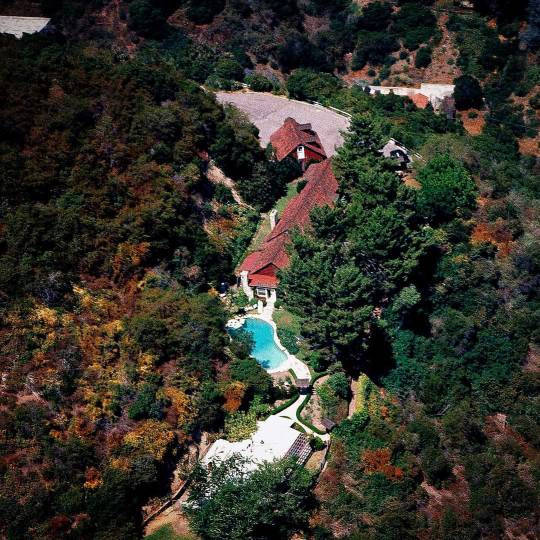
Aerial view of 10050 Cielo Drive
21 notes
·
View notes
Photo

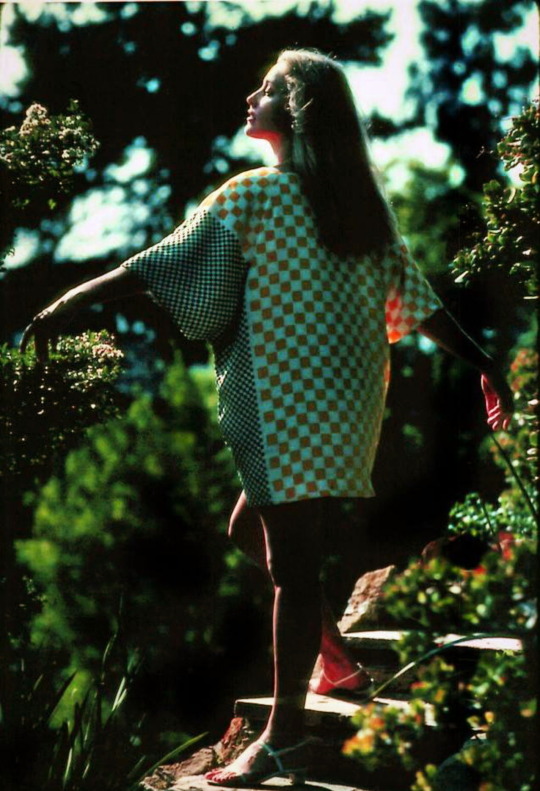
Sharon Tate photographed by Hatami in Benedict Canyon spring 1969
54 notes
·
View notes
Photo
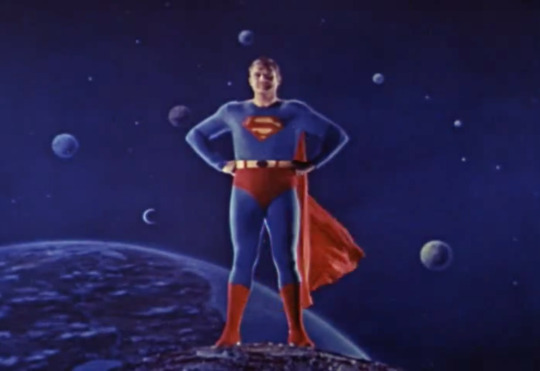
Superman director Thomas Carr recalled the atmosphere at the home of George Reeves:
“He got mixed up with a few strange people, people who might be a little too much on the booze, too much on dope, too much into gambling, or hooked up with a gang or syndicate. But then a lot of actors did.”
21 notes
·
View notes
Text
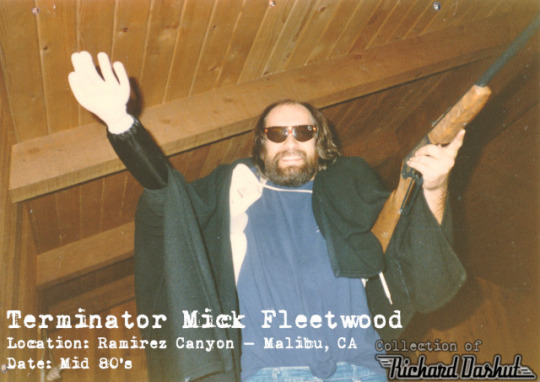
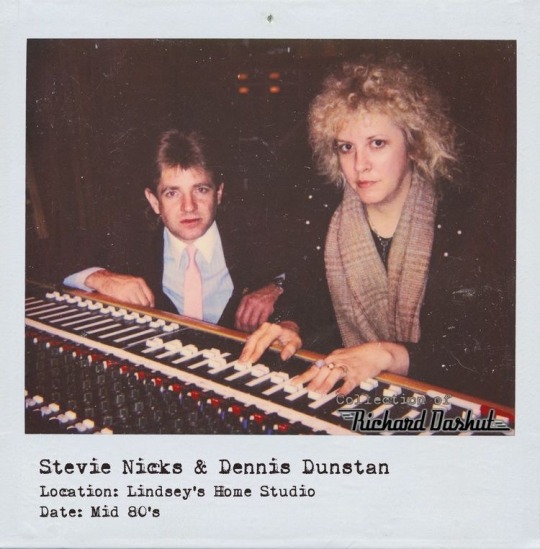
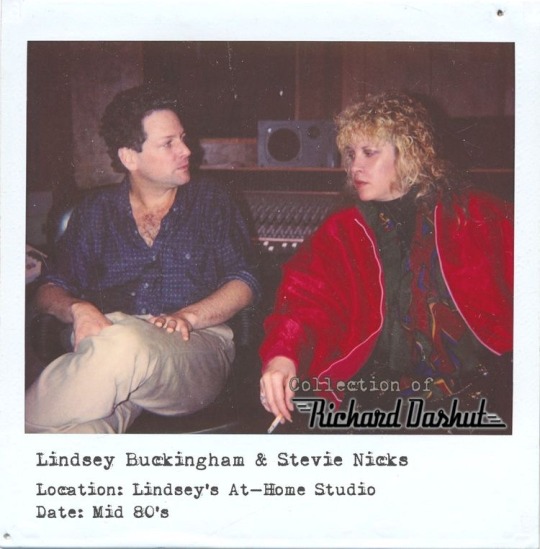
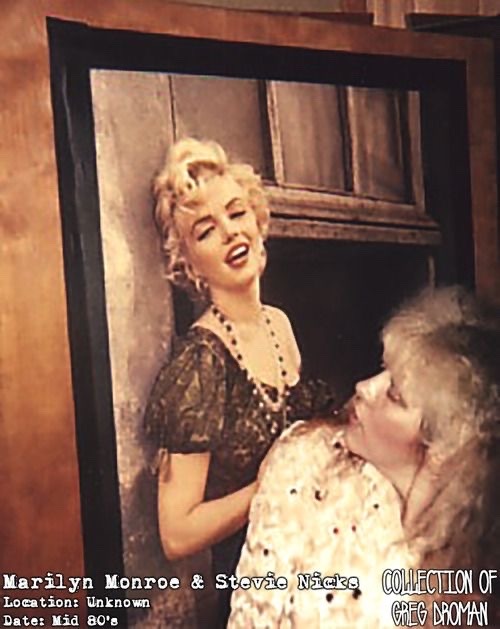


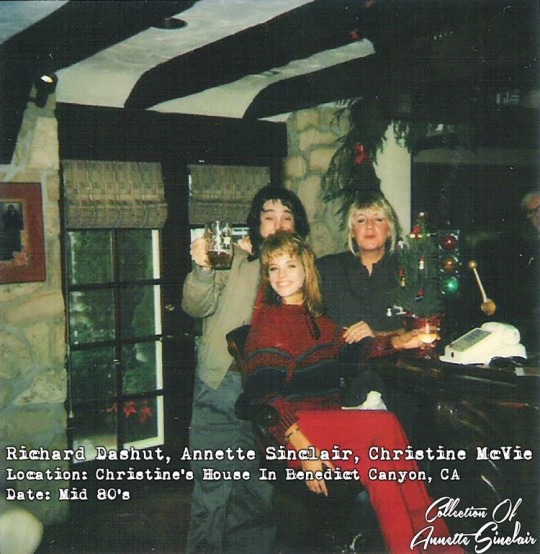
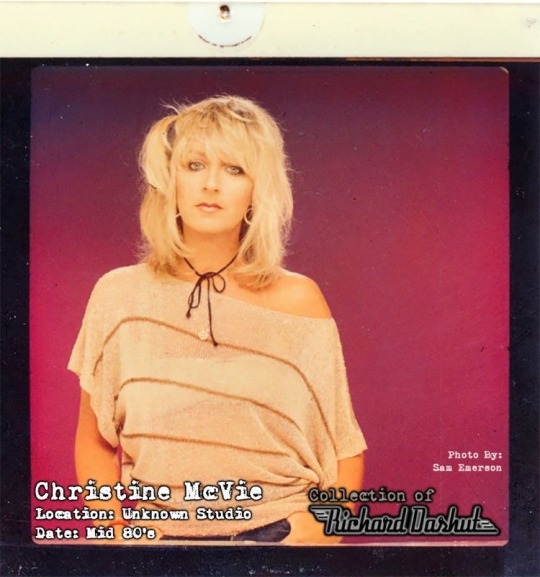
Collection of Richard Dashut (45/?)
Mid 80’s.
#stevie nicks#lindsey buckingham#christine mcvie#mick fleetwood#dennis dunstan#marilyn monroe#janice dickinson#richard dashut#annette sinclair#sam emerson#fleetwood mac#collection of richard dashut#1980s#early mid 80s#mid 80s#ramirez canyon#lake shasta#boat#benedict canyon#malibu#california#lindsey’s home studio#recording studio#stuffed animals#stuffed toys#candid#photoshoot
21 notes
·
View notes
Text

44 notes
·
View notes
Text
time: 07:27
me: cool lana del rey reference
0 notes
Text
how fuckd up would it be if rabbits had tumblr….
0 notes

🐇 raspberryberet2 Follow
i cant believe leporidae on this site dont know how to courtship correctly. an anon just asked me why their relationship isnt working even though he only chased her for 5 minutes. any buck thats worth it would at LEAST have the energy to run for 7 hours!
723 notes

🌨️ chilledoutlop Follow
haters are mad my snow coat grew out better than theirs! cant help it if im surviving this winter!
2 notes

🌷jarjarbinkies111 Follow
my hungry ass could never live next to a gardener…
#tunnelr is sooo easy
78,678 notes

🌵 curious-hare Follow
met this girl online and turns out she wasnt a ‘doe’ she was a DOE. a deer. we both met near the canyon lakes and guess who almost got trampled!! fml
3 notes

🥀 blanc-de-thoto Follow
i want Benedict Cucumberpatch to sign my dewlap SO BAD!!!
🔁 blanc-de-thoto
is this really how i talked back in 2011
#why was i like that
32,765 notes

🥀 blanc-de-thoto Follow
omhg i NEED him sooo bad.. he could fix me in every single way
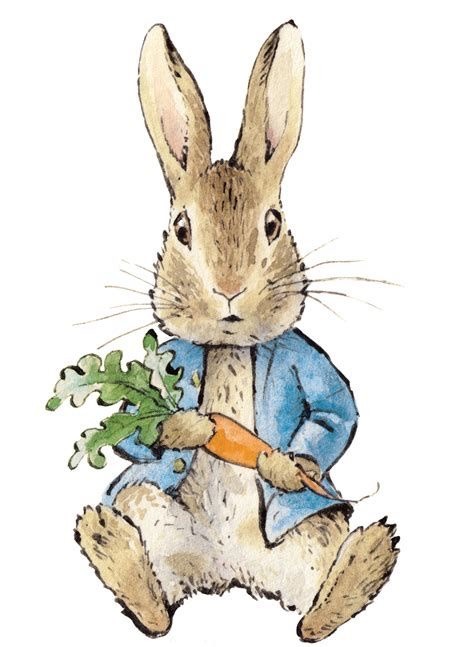
#freaking out rn #writing a new chapter for that angst fic about his family btw!!
45 notes

🍄 lucky7tail Follow
what would happen if i tried to chase the hunters dogs instead of them chasing me..
🔁 lucky7tail Follow
hopital.
#not the gotcha i thought it was
89,567 notes

#bunnies#bunny#rabbit#rabbits#bunnykin#rabbitkin#lagomorph#hare#hares#rabbitposting#bunnyposting#fake posts#unreality#bunnyblr#‘tunblr’#fake tumblr post#TUNNELR#OKAY I KNOW THERES BUNBLR… criez and criez and criez#1k#2k
7K notes
·
View notes
Text

In the hills of Benedict Canyon
Love has room to grow in the hills of Benedict Canyon
My green typewriter light is on
and two months’ time between me and my last man
No double murder plots looming over neighbors’ vacant lots that i look upon at twilight, still light enough for the Starline bus to be carrying on. I listen to the hippie spouting nonsense at the foot of Bella Drive
hammering on about Sharon and the sanctity of life
I listen on intently
thanks for the free ride
and for reminding me that everything comes down to a story and to laugh when you could cry.
...
- Lana Del Rey, Violet Bent Backwards over the Grass
#lana del rey#violet bent backwards over the grass#lana del ray aka lizzy grant#poetry#poetrycommunity#ldr#paradise#born to die#lizzy grant#elizabeth woolridge grant#lana lyrics#west coast#americana#vintage americana#dark paradise#lana del slay#aka lizzy grant#writers and poets
9 notes
·
View notes
Text
*breaks water*
So, Saturday through Tuesday, I nailed down the first chapter. That's a little over 5,000 words of my write-to-spec. I feel pretty good for my first foray into this genre - if it were on Ao3, the tags would be monsterfucking, xeno, consentacles, and oviposition. The editor can use the program to look in on our work and make comments, but I only had a few things they wanted changed.
The kitties are integrating, and at the moment Dusty and Moki are silly-chasing around the house. They bat paws at each other, racing up and down the cat trees and she will hiss at him when he's too rambunctious for a little old ladycat. Beanie is still a holdout, but is less fierce now. He treats her carefully, rolling onto his back and making kitten-mews, extending his neck to touch noses.
Rain is coming, possibly over a week of it. It's been maybe 25 years since the last time that happened. I bought some Quick Dams for the front porch and the balcony, reamed out the drains again, and ought to be safe and dry. The designers of Los Angeles kind of forgot to account for rain. I wonder if Pacific Palisades is going to skid a bunch more expensive real estate onto the beach. Likewise the canyon streets always have landslides, lesser ones, or as anyone with sense would say 'red flags.'
"Oh, yes, let me build my ridiculously expensive house that looks like a white box office building in Benedict Canyon and- oops."
Work is still pretty busy, and we're moving more purchasing over to Mexico. A couple of manufacturers we were dealing with in China have simply fallen off the face of the earth and one of the reps I dealt with just said that he's not working for his company any longer. He did not say it in so many words, but I think they might have gone under. The other one was pushing us to take orders earlier, place new orders before the previous order was even delivered, and tried to change the payment terms. We were going to order after Lunar New Year, but there's a company here in the US with a smaller MOQ - pallet vs. container. Boss is happy about that.
Back to work.
7 notes
·
View notes
Text
Music for Films, Vol. IV: Once upon a Time…in Benedict Canyon or, Tarantino, Redux
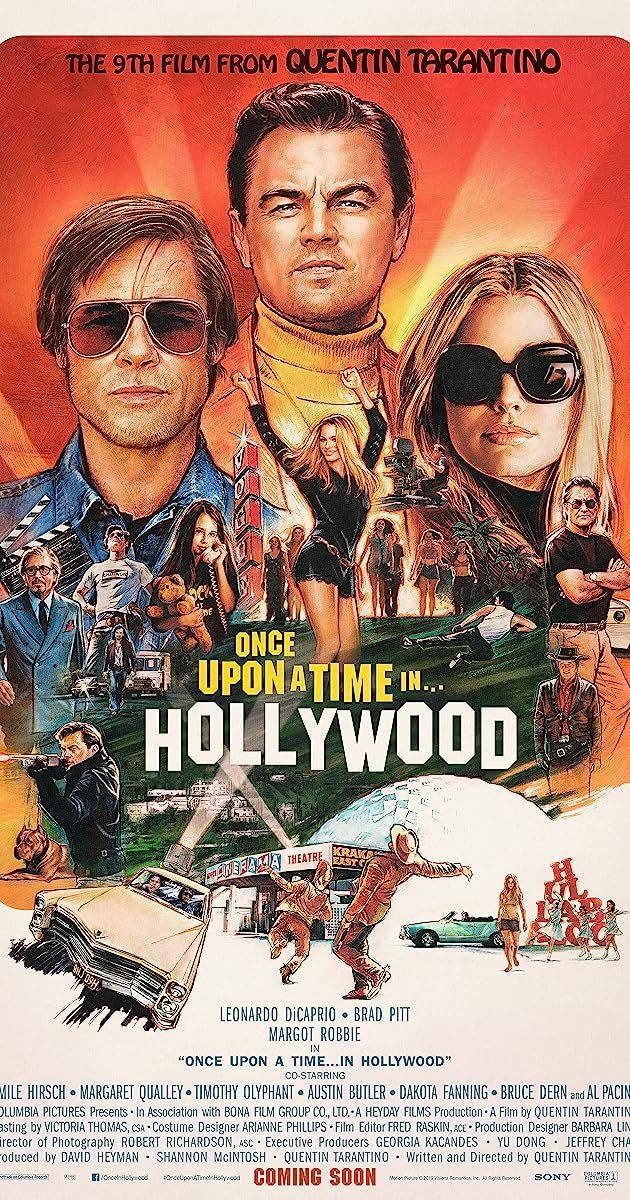
(N.B., I wrote an earlier piece in this series about Quentin Tarantino’s Death Proof [2007], which seemed to me to represent the apotheosis of that director’s postmodern sensibility, for cinema and for its use of pop music. That still seems accurate to me. But Tarantino’s Once upon a Time…in Hollywood [2019] turns out to be a much more interesting engagement with both of those aspects of his filmmaking, and with postmodernism, generally — and it’s also a film I admire a bit more. So we go around again. If, however, you are sick of Tarantino and of chatter about his films, I get it. For sure, he’s irritating as hell in interviews — and below, I start with some of my own irritation at his winking and ironical guffawing. But, as is the case with someone like Richard Hell, it’s useful to separate the man from the work, and if you can pull that off, the work can be pretty great.)
There are moments in Once upon a Time…in Hollywood at which Quentin Tarantino’s auto-referentiality tips over from risible cleverness into unsavory self-obsession. See the scene about 80 minutes into the film, during which Cliff Booth (Brad Pitt, effortlessly cool) finally picks up the always hitching and emphatically sexually available Pussycat (Margaret Qualley, breathlessly feral). After they connect on their shared histories with Spahn Movie Ranch, Pussycat settles into the Coupe de Ville’s massive bench seat and, inevitably, puts her feet up on the dash. Her toes smush into the windshield; the bottoms of her feet are filthy. You can just about feel Tarantino hyperventilating — or maybe he’s laughing his ass off at us. Tarantino and feet, it’s an exhausted punchline by now. And the moment is almost a direct quotation, a visually inverted rendition of the opening shot of the narrative portion of Death Proof, in which Butterfly’s (Vanessa Ferlito) feet rest on the dash of Shanna’s (Jordan Ladd) Honda Civic. Tarantino seems to want you to make the connection, and, perhaps, to feel a little bit gross about the fact that you can.
The whole scene is shot through with problematic erotic energies, generated less so by Pussycat’s directness (“Obviously I’m not too young to fuck you, but obviously you are too old to fuck me”), more so by Cliff’s reasons for not pursuing her (“What I’m too old to do is go to jail for poontang”). And Tarantino has Dee Clark’s “Hey Little Girl” lasciviously jangling from the Coupe de Ville’s radio: “Hey little girl in the high school sweater / Gee, but I’d like to know you better / Just a-swinging your books and chewing gum / A-looking just like a juicy plum.” Gee. I get the crassness of the choice, which provides an intensification of the more playful song accompanying Cliff’s first look at Pussycat on a different LA street (and about 63 minutes earlier in the film), Simon & Garfunkel’s “Mrs. Robinson.” With all the signaling, ogling and panting, it’s easy to forget the song that immediately proceeds “Hey Little Girl,” sonically framing the initial gestures of Cliff and Pussycat’s conversation.
youtube
The song is typical of Neil Diamond’s peculiar talent for constructing gravid schmaltz that is neither too serious nor too cloyingly mawkish (mostly, anyways). That emotional tonality seems a less than intuitive choice for Cliff and Pussycat’s encounter — until we remember why she wants a lift to Spahn Ranch, and who might be there to meet them. Diamond’s Brother Love is a religious huckster, a metaphysical con man, and so, in part, was Charles Manson, a wannabe acid-soaked Svengali who managed to bewitch more folks than seems believable. Pussycat’s passionate desire for Cliff to meet him (“Charlie is reeeeally gonna dig you”) suggests Manson’s poisonous influence over her. She is thus the fictional avatar of numerous women and girls, like Mary Brunner, Susan Atkins and Squeaky Fromme, who fell under Manson’s influence, utterly convinced of his psychic and prophetic powers.
Manson, as is widely known, was erstwhile friends with Beach Boy Dennis Wilson and with producer Terry Melcher. Manson first went to the house at 10050 Cielo Drive, where Manson Family members would eventually murder Sharon Tate and several others, looking for Melcher. Manson was attempting a career as sort of demented folksinger manque, and he wanted to bug Melcher about it. By 1969 Melcher was coasting on the rep he had built producing the Byrds’ hit records from 1965 and most of Paul Revere & the Raiders’ sides from 1965 to 1968 (and that band’s singer Mark Lindsay also briefly lived at 10050 Cielo), including this tune:
youtube
Watching Sharon Tate (Margot Robbie) bounce around the room is a charming experience, and Robbie’s still-youthful beauty is an interesting counterpoint to the aesthetic pleasures of Pitt’s middle-aged body. In truth, Robbie isn’t given all that much to do in Once Upon a Time…in Hollywood; mostly Tarantino seems to have told her, “Okay, be adorable” (though we should also note that it isn’t hugely easy to be adorable on demand). There may be an intent in that: to revise the dominant filmic profile on Tate, the sex kitten in Valley of the Dolls (1967) and half-naked beach bunny in Don’t Make Waves (1967), presentations underscored by a nude-photo-supplemented article on the actor in Playboy. Tarantino renders Tate beautiful — not much else one can do with Robbie — but never insists on her as a libidinally charged presence (save for a shot or two of her feet …).
Hence the smart choice of the Paul Revere & the Raiders tune. Their goofy costumes and bright vocal harmonies cast them very much in the mold of the British Invasion, with Beatles-ish overtones of mop-topped sweetness, and the explicitly anti-dope messaging of the band’s hit “Kicks” further associated them with a cleaned-up vibe, distinct from druggy counterculture. In the film, Tate teases Jay Sebring (Emile Hirsch), “Aw, what’s the matter? You afraid I’ll tell your friend Jim Morrison you were dancing to Paul Revere & the Raiders?” Morrison doesn’t appear in the movie, but in just another minute of screen time, Manson (Damon Herriman) does. Sebring stops him at the front door of 10050 Cielo, and when Tate approaches (walking past a massive reproduction of a poster for Don’t Make Waves, Tarantino just can’t help himself), Sebring tells her, “It’s okay, honey, it’s a friend of Terry’s.”
Of course, the arc of history tells us that it’s not okay. The sheen of good feeling and innocent kicks pop culture was attempting to sell in the late Sixties had been mussed up by all the “fucking hippies” that Cliff and Rick Dalton (Leo DiCaprio) continuously curse at as they drive the Strip. Even Spahn Ranch, in the film formerly the production site for Dalton’s hit cowboy show Bounty Law!, has been overrun by Manson’s accumulating freaks. That’s another historical fact that Tarantino lovingly recreates, reducing the Ranch to a relic, a dusty ghost town haunted by sweaty, fried, raggedy heads and a legion of young women, Pussycat among them (Dakota Fanning turns in a terrific performance as Squeaky: paranoid, overheated, drenched in weird, wanton ambiguities).
Their presence is disorienting, but it can’t entirely dislodge the visual logic of the cowboy film, the Western. In part, that’s due to the sheer amount of time the film devotes to painstaking reconstructions of Westerns, in cinema and TV, in LA and Italy; see especially all the minutes of Dalton on set, filming his guest appearance for the pilot of Lancer, a Western that ran on CBS through the late 1960s (and we should note that Bruce Dern, who portrays George Spahn in Tarantino’s film, did some work on Lancer early in his career). But the more interesting nods and allusions to the Western cluster around Cliff: buckling on a holster-style work belt when he fixes Rick’s TV antenna; staring down the line-up of Manson Family women who gather across the dirt lane in Spahn Ranch, like bandits inviting a gunfight; and most emphatically, his shoot-out-style stand-off with Tex Watson (Austin Butler, and more on that just below). Appropriately, when Cliff gets his first few minutes of solo camera time early on in the film, Tarantino scores it with a song that works through numerous tropes of the Western antihero.
youtube
Some might assert that a Gram Parsons tune would better suit both the Western style and LA in 1969. But I’ll argue for the Seger song, even though it was recorded when he styled his band as the Bob Seger System, not yet the Silver Bullet Band (which would get us semiotically closer to the gun and the cowboy). “Ramblin’ Gamblin’ Man” (1969) is certainly a rhythmic match for Cliff, as he careens through the city’s streets and freeways in his beat-to-shit Karmann Ghia. And check out the lyrics: a tale of a “ramblin’ man” who left home at thirteen; a past-master of roulette and dice; rugged and a little ugly, but full of macho sexual confidence. All he needs is the horse. Most significant, the song’s lyric speaker eventually notes, “Gotta keep moving, never gonna slow down / You can have your funky world, see you around.” That’s Cliff to a tee, but it’s also Sergio Leone’s Man with No Name, who is always ready to ditch the scene when the civilized world becomes too much its petulant, cynical self. Better out in the bush, among the cacti and canyons. And while the usage of “funky” seems a poor fit for a cowboy’s mouth, it’s right on point for the film’s take on LA, as it lurches into counterculture’s violent dissolution.
It's unfair to counterculture to peg that dissolution to the Tate-Labianca murders. We can more meaningfully reference the 1970 explosion at 18 West 11th Street in NYC, or Eldridge Cleaver’s fugitive conversion to evangelical Christianity, or Altamont, or any number of other events, betrayals and tragedies. But the Manson Family’s perverted use of countercultural language (“revolution,” “the pigs,” “grokking”) is particularly galling in its confusions and lunatic bloody mindedness. Tarantino is tuned into it: see Sadie’s (Mikey Madison) deranged rant about “pigs” and “fascists.” Even a year earlier, other speakers were using the terms with much greater clarity, and many of those speakers were black.
So what do we do with this:
youtube
Black confronts white. Bad guys threaten good guy. The stand-off morphs into a massacre, but not before Cliff brings up the Western again, reminding us of Spahn Ranch and of Tex on his “horsie,” belittling him and adding to Cliff’s inability to take Manson’s minions at all seriously (Cliff, to Tex: “Uh, you are?” Tex, intoning: “I’m the devil, and I’m here to do the devil’s business.” Cliff, dismissive: “No, it was dumber than that…”). Soon Brandy the pit bull is chewing Tex and Sadie to pieces, and Cliff is hammering Katie’s (Madisen Beaty) head into any number of hard, angled surfaces. (Let’s not linger on Dalton’s flamethrower.) The violence is gratuitous, meaty, precisely staged and shot. It’s a Tarantino film, after all. And in this brutally antic sequence, the film and the director shift into another generic form, very dear to Tarantino: the revenge drama.
A number of Tarantino’s films have employed revenge plots: all of Kill Bill (2003, 2004), Death Proof (2007), Django Unchained (2012). Inglourious Basterds (2009, featuring a cartoonish but still satisfying performance from Pitt) expanded its revenge to world-historical scale, using film as a weapon for culture to take its vengeance on Hitler, and on the Nazi Party’s development of cinema as a vector for political propaganda. Once upon a Time…in Hollywood is less expansive but still has complex dimensions: American pop takes its revenge on Manson, rolling back his invasion of LA’s industrial and cultural turf and reversing — if only symbolically — his extinguishment of Tate and her career, of all the images and roles she might have given us.
But it’s possible to discern other layers to the vengeance, if one listens. Running throughout the fight sequence is the Vanilla Fudge’s bombastic, psych-rock rendition of “You Keep Me Hangin’ On” (1967), which is both a suitable and a strange choice. Suitable, in that its acid intensities resonate with Manson and with Cliff, who is tripping throughout the scene. Strange, though, in its lack of a clear thematic relation to the scene’s action, which seems to have guided other songs’ selections — certainly “Brother Love’s Traveling Salvation Show,” and “Hey Little Girl,” and “Ramblin’ Gamblin’ Man” and even, in its limited way, “Good Thing.” So why would Tarantino abandon that logic here, at the film’s big, bloody climax?
As ever, with Tarantino, the layers have histories.
youtube
“You Keep Me Hangin’ On,” of course, was first recorded and released by the Supremes, for whom it was a #1 charting single in 1966. There’s a sort of pattern suggested by the film, of utterances and meanings developed in black American culture that are quickly adopted and refitted, frequently rendered vanilla (hello) and commodified, by white culture. To be sure, the Supremes also produced a successful commodity with their version of the tune. But the play among those songs and vinyl sides suggests a more problematic set of appropriations — among them, Weatherman’s use of the revolutionary language developed by the Black Panthers and Stokely Carmichael, which Billy Ayers, Bernardine Dohrn and others spouted and spun out to fringe actors, like Manson, who degraded it, rendering it nearly meaningless.
“Helter Skelter” was another of the Manson Family’s watchwords, and another of Manson’s nutty notions, alleging that the Beatles song was endowed with the power to launch a race war in America. Manson’s racism mixed paranoia with his megalomania. He envisioned an America in which blacks would murder all the white people, save for him and his followers. In his view, blacks were too incompetent to govern themselves; they would need a white leader, and it would be Manson. So while Ayers and Dohrn called cops pigs in an attempt to make common cause with black revolutionaries (who were deeply skeptical of the white kids and their enthusiasms), Manson and his minions called cops pigs out of a chaotic psycho-social melange of persecution, ressentiment and bizarre apocalyptic divination.
So maybe we should linger on Dalton’s flamethrower a bit, after all. He uses it to torch Sadie to death, the Mansonite most earnest in her identification of him as another “piggie.” Close to the film’s beginning, there’s an ersatz movie clip drawn from The Fourteen Fists of McCluskey, in which Dalton, as the fictive hero McCluskey, uses the same flamethrower to burn a bunch of Nazi officers to death. It’s another Tarantino callback, to the climax of Inglourious Basterds and the incineration of many, many more fascists (and that scene had the benefit of the fever dream of Shoshanna Dreyfus’s [Melanie Laurent] face, projected onto the celluloid-fed inferno and madly laughing, surely one of the best images Tarantino has ever concocted). But the visual synonymy identifies Sadie with the Nazis. She seems to be the fascist. She has certainly been infected by Manson’s racist manias and linguistic depredations.
That may be too clever, by half — but with Tarantino, that sort of playful cascade of images and associations that ends up feeling meaningful is generally what we get, and in this case, there is a sort of critique to be made. If the postmodern in part emerged amid the collapse of counterculture’s revolutionary agendas, Once upon a Time…in Hollywood directs its wrath at a symbol of that collapse, and of the resulting nightmares borne on dope, irrationally enraged agony (especially over Vietnam, news of which occasionally issues from car radios in the film) and harebrained political analysis by kids reading texts that had currency amid a very, very different conjuncture. While Tarantino’s revenge narrative morphs generic forms again at the end, into alternate history, there’s a way in which that mutation can be read as a useful provocation. Not just a thought experiment, or a gesture lionizing fiction’s weirding power, in some ironized celebration of relativist spectacle. But a reminder that while history has to happen the way it happens, our histories are constructions, and they tell very partial and very particular stories. It’s an old saw, now, to recommend postmodernity’s meta- moves and pop cultural saturations as testing grounds for our reading strategies, but that doesn’t make the assertion any less cogent. Perhaps, to burn through the layers of images, to burn down the funhouse of contemporary revisionisms and to fight the fascists, who continue to manipulate media, what we need is a powerful instrument: our minds, tempered by their interactions with tempting narratives that wish to tell us pleasant stories.
Or mavbe we just want to watch Sharon dance, Manson be damned.
youtube
Jonathan Shaw
7 notes
·
View notes
Text

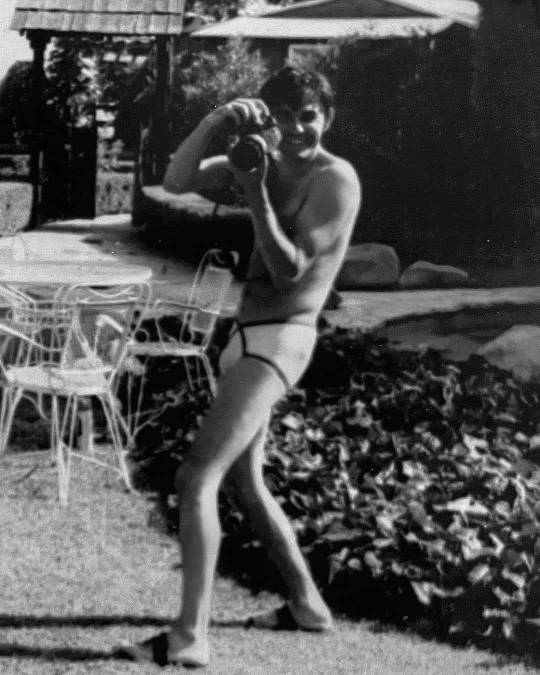
Sharon Tate and Jay Sebring at the house on Cielo Drive, August 1969
📸 Voytek Frykowski
#sharon tate#jay sebring#10050 cielo drive#beverly hills#Benedict Canyon#august#1969#black and white photography#voytek frykowski#the 60s#August 1969
40 notes
·
View notes
Text
The After Party (TSHOEH, Chapter 8)

The amazing art by the one and only @feluart to introduce a chapter portraying the event we all know and love: Celia & Evelyn’s kiss at the after party at the Ari Sullivan’s mansion. Ever wanted to know how Celia reacted to it when she was nowhere in sight? Here’s your chance to find out!
Previously: TSHOEH Fanfics Masterlist
Next: The Morning After
AO3 LINK
__________________________
Ari Sullivan’s mansion at the top of Benedict Canyon was basically the peak of Old Hollywood extravaganza: a kitsch symphony of marble and gold, velvet and crystal, contemporary luxury and Greek statues along the hallways. An opulent swimming pool and rows of palms decorated the garden as vast as a national park.
Inside, the halls of the majestic villa were packed with the movie industry upper crust: all sorts of moguls, execs, starlets and movie stars crowded the place together with their plus ones, chatting and picking fancy-looking cocktails from trays. Waiters and maids surfed through the wealthy midst like hardworking bees, offering drinks and canapés while a band played in a corner of the main hall. I didn’t recognize the singer but he was singing some popular Harry Belafonte tunes.
As I set foot there, I remember thinking “this is how attending one of Jay Gatsby’s parties must have looked like”.
I looked for Evelyn but she was nowhere to be seen. Sadly, I had lost sight of her when we got out of the theatre: I wanted to check in on her but she and Don fell behind and I was pushed forward by the attendees to the premiere.
[To continue reading, check the AO3 link above]
#the seven husbands of evelyn hugo#tshoeh#tshoeh fanfics#evelyn hugo#celia st james#evelyn x celia#celia x evelyn#evelyncelia#wlw love
66 notes
·
View notes
Text
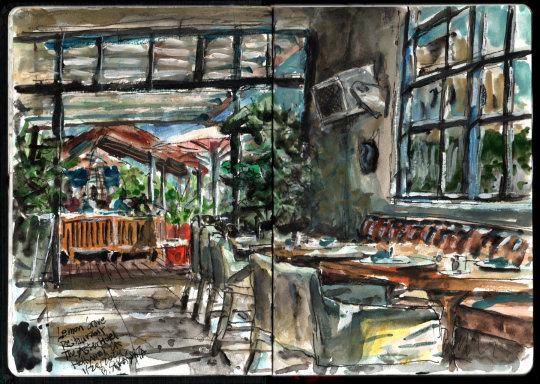



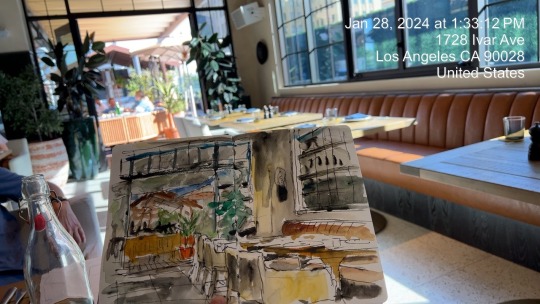
Went hiking with Bill on Sunday at Runyon Canyon Park in Hollywood. Beautiful day, no cloud and we could see the both the HOLLYWOOD sign and the ocean. We stopped for brunch at a local restaurant on the Hollywood Walk of Fame, on the 6th floor with a spectacular open view. Limited menu but the food was very high quality, and the prices reasonable. Salmon benedict, fried chicken sandwich and banana foster pancakes. After the craft beer and coffee we were fatter than when we started the hike.
Lemon Grove Restaurant
6th floor, Aster hotel
Hollywood, CA
Fountain Pen and watercolor on A5x2 Hahnemulhe watercolor sketchbook
January 29 2024
#油彩画#水彩画#sketch#croquis#cityscapepainting#sketchbook#citysketch#スケッチ#dessin#gouache#urbansketchers#gouachepainting#アート#pasadena#イラスト#グラフィック#デザイン#travelsketch#만화#urbansketching#losangeles#hollywood#lemongroverestaurant#asterhotel#runyoncanyonpark
4 notes
·
View notes
Text
going vocal
if this great outpouring of our souls
at times bewilders me
it is only because the fecundity
of our sharing is the space where
pregnant pauses used to reside
our diaries once had locks
whispers sieved through cupped hands
scribbles secreted aboard paper planes
destination one
opinions portioned out at dinner tables
letters queued up, patiently
awaiting the editor’s benediction
now we’ve thrown away the keys
now we give ourselves away for free
is it because we are so short lived
with voices only slightly longer?
(like desert blooms, like canyon echoes)
yet now they can break down doors
crash through ceilings
make themselves heard!
(like tsunami waves, like downtown traffic)
it feels orgasmic, this unleashing of
vocal chords, this raucous symphony
this repository of our collective psyche
the best therapist we’ve created
since God
there's nothing we can’t accomplish
if attention is the goal, in a manic dream
we’ve stumbled upon the nuclear option
– SJM
27 notes
·
View notes
Text
Title: Kate Is a Governess AU
Author: 1016anon
Fandom: Bridgerton
Pairing: Anthony Bridgerton/Kate Sharma
Summary: Daphne has Amelia.
A/N -- Angst. Grief. A lot. You've been warned.
-6-
Anthony had known Daphne would have children. He'd known it would be a difficult time for Kate.
He had vastly underestimated how difficult it would be. Kate herself had not realized she had yet more tears to cry; that her heart could be broken into finer and smaller microfractures. The deep canyons of grief had been worn smooth by the years-- they would always be there, but Kate knew how to navigate around them. She was familiar with the landscape of her heartache.
News of Daphne's pregnancy was the tremor before the quake of earth. It did not demolish Kate's heart of stable canyon walls; the layers of sandstone and limestone, whose jagged outcroppings had been gently eroded to rounded corners, merely shuddered for a moment, then stilled. Dust fell, and small rocks. Fragments of the surface were chipped away, little by little, leaving behind small cracks.
Daphne, glowing despite her morning sickness, hair lustrous and thick, sharing stories with Kate and Anthony of all the different foods she made Simon fetch for her from the kitchen at all hours of the night-- they were happy for her. Happy for them both. Anthony's joy overflowed; Kate's was generous as a waterfall. And he became quite adept at the art of smiling whilst searching his wife's face for any trace of sadness.
There were several occasions when he noticed, after they left Hastings House to return home, when she was quiet and stared out the carriage window. But these were far outnumbered by trips when she could not stop speaking of how Daphne planned to decorate the nursery; what kinds of toys Edwina had played with as a baby and whether they should buy some for Daphne; the deliberation between using a surgeon or a midwife. Kate was firmly for a midwife; Anthony argued for a surgeon. Obviously, Kate won.
Daphne visited Bridgerton House, or Kate went to Hastings House, nearly every day. Simon, equal parts amused, ecstatic, terrified, and beleaguered, often found himself in Anthony or Benedict's company. Whatever it was that their wives spoke of was relegated to the mystical realm of the fairer sex, though Anthony and Benedict were more than happy to regale Simon with some truly horrendous stories-- the dubious badges earned from the hard fought battle of raising their siblings. Simon practically dragged Will to Bridgerton House out of self defense, only to find himself faced with a chorus of three.
Alice shared all her tips and tricks-- detailed knowledge that could only be gained by having gone through the process-- with them both. She assumed, like all of the ton, that the Viscount and Viscountess remained childless because they were having a bit of difficulty conceiving. It was nothing unusual; some women became pregnant if a man so much as looked at her sideways, for other women it took several tries to produce a sickly girl, not even an heir. Thus Alice, with her good intentions, spoke to Daphne and Kate both of the children they would have and what they could look forward to.
Anthony did not find it unusual-- in fact he expected-- Kate to become a little quieter, a little slower to laugh, a little forced in her smiles, as Daphne's pregnancy progressed. It made sense. She was surrounded on all sides by the baby. The children were excited to meet their niece or nephew; Daphne's body changed and for a period of time, her moods swung wildly. Kate was always there to look after Daphne; Anthony watched worriedly as his wife took notes while speaking to the midwife.
He held her more closely at night; he told her again and again, endlessly, that he loved her because he knew she needed to hear it. Sometimes she cried in his arms and he was relieved that she turned to him for comfort, that she was willing to share with him this growing grief.
But they both thought they were managing. This was a truly happy time for Simon and Daphne; Kate didn't want to cast a shadow on that. She felt that maybe, helping Daphne, being there along with her through every step of the pregnancy, would heal her also. Anthony certainly hoped this was true; he worried often that Kate was torturing herself by doing this.
Kate had gotten used to the tremors of her heart. She didn't pay attention to the way the canyon walls grew more and more jagged; where the fissures had once bled pebbles, now pieces the size of stepping stones shattered when they hit the bottom. What she did not know, but subconsciously felt in dreams, were the cracks spreading. What Anthony had not foreseen was that a ceramic vase can retain its shape after it's fallen to the floor; the hairline breaks spidering through in grey lines almost looked like a style produced by a certain glaze.
They'd both assumed that it was when Daphne began to show that Kate's grief would intensify. Or when Kate felt the baby move for the first time. Or perhaps in conversation, something would make the waterfall into a raging torrent of bitterness, regret, longing and that inescapable, implacable sadness. After everything they had been through, Anthony and Kate had no secrets from each other; they spoke to each other, in the deep safety of their bed at night, and were honest with each other. He always asked; he always offered; she always answered; she always asked.
The day Daphne gave birth to little Amelia, Kate had been to the left of her and Simon to the right. Anthony paced in the hall, worried because the last time he'd been present at a birth, the surgeon had told him he'd have to choose. His sleeves were rolled up to his elbows, he kept looking at his watch and timing Daphne's contractions. The midwife was an experienced, no-nonsense woman who gave him brief updates rather than bland platitudes. He could have summed up those fourteen hours of labor in three words: all is well. Four word sentences: the mother is fine; the baby is crowning; the baby is born; the baby is healthy; the mother is fine.
When he was finally allowed to enter the room, he saw Daphne about to drift off to sleep, Simon holding the baby. Kate was smiling from ear to ear when she took the baby from Simon. Anthony watched her cooing, her forehead shining with sweat and her thick braid coming loose as the baby blinked up at her. He came to her side, asking nonsense questions: how much did the baby weigh? Is she very long? Did Simon cut the umbilical cord? Had Daphne delivered the afterbirth without issues?
Kate answered his questions quietly: the baby was seven pounds, four ounces; she was not long but would most certainly grow to be tall; Simon was too squeamish to cut the umbilical cord, so Kate did it; there were no problems.
He should have known:
She asked, would you like to hold her?
And of course he didn't have to answer, she was already handing Amelia over to him and they stood there, heads close together and her body press to his, smiling at the baby whose eyes kept shifting focus between him and Kate.
It was when Daphne roused for a moment and Kate went to her side to see what she needed; it was right before Simon came back into the room, having taken a quick bite to eat and changed into a fresh shirt; it was then.
Daphne made the universal motion of "give her to me" and Anthony grinned, carrying Amelia to his sister.
Kate, who had gotten through the nine months without breaking
The moment she saw Anthony carrying a baby in his arms,
disheveled, tired, smiling
the light of the sun illuminating his face just so
looking like a proud father
That moment
That was the moment
She froze.
Something unspeakably silent was howling inside her as the earth finally broke open and every single tiny fracture, all those little cracks and breaks, the lines which looked like ceramic glaze, sandstone and limestone and dust and boulders
Her heart was an earthquake that swallowed her whole
And she fell.
Anthony stood there, shocked and helpless, as he watched his wife break in front of him.
She did not show it outwardly. Daphne simply looked between them, puzzled; he was still holding the baby and not yet within Daphne's reach. There was most certainly some kind of expression on his face; Anthony thanked god that Daphne was too tired to focus on anything other than Amelia. He thanked god that Simon did not enter the room until half a second later. Kate helped adjust the pillows so Daphne would not have to support the entire weight of Amelia while she held her close.
Simon was back by Daphne's bedside shortly after Anthony had carefully put the baby in his sister's arms. He ushered Kate out, citing that they would go back to Bridgerton House to give Simon and Daphne time alone with the baby. They would have enough well wishers and visitors in the coming days; if Daphne or Simon needed anything, they were not to hesitate to send a footman, at any hour.
The new parents listened but did not hear a thing, so enraptured by their daughter.
Kate held herself stiffly; he told the butler to send their things later, he and Kate were going to Bridgerton House immediately. They themselves needed to rest.
She managed to hold herself together in the carriage ride and would not let him touch her, lest she lose all control. She plastered a smile to answer the childrens' questions, which Anthony took over quickly so that Kate could take unnaturally even steps up to their chambers; Anthony made significant eyebrows at Martin to have the maids prepare a bath for them.
After making promises to his siblings to give them all relevant information later, at dinner, telling them Kate had been awake all night helping Daphne and he had to join her--
After he escaped their loud joy and rambunctious chatter, he entered his chambers to find--
Kate
Kate, naked, sitting in the middle of the bath, knees pulled up to her chest and her arms wrapped tightly around her legs, hair wet and curled and tangled, shivering as though the water was freezing.
Anthony undressed as quickly as possible and stepped in behind her; the water was almost scalding.
As soon as he touched her shoulder, her whole body began shaking with deep, desperate, wracking, silent sobs.
And he couldn't give her words; he couldn't give her reassurance; he couldn't give her anything except to wrap himself around, even as she tried to make herself as small as possible. There was a time to hold on as tightly as he could and there was a time to simply surround her until their world was made of two heartbeats. He was struck with a sudden fear that if he held on too strongly, if he tried to keep her remaining pieces from being swept away in the floodwaters of the dissected plateau, she would crumble like dry red clay.
So he molded his body along the shape of hers-- like a soft shell, still tender and vulnerable after a molt.
It seemed to last forever; it seemed to last a second. It lasted long enough for the water to go to the unpleasant side of lukewarm and like all true cataclysms, he could not remember the details of what happened. Only that as she cried with an intensity that rivaled the screaming hailstorm wind, the tension in her body broke and he caught her even as she reached for him.
There was no nonsense which could be whispered to soothe; just the ocean of her grief crashing to demolished cliffs, the salt of the sea a relentless rhythm against his ribs. Anthony was vaguely aware he was crying, though not bodily. Crying because she had too many tears locked inside her, so he lent her his body to express her sorrow.
She was mourning-- she would always mourn-- the children she could not have.
Anthony mourned because she was mourning.
The understanding came to him in a whisper: it would not always be like this. When his brothers and sisters had children, when her sister had children, it would not always be like this.
But sometimes, it would be like this, for no known rhyme or reason; and this is what he agreed to share when he married her. He would never understand it; he would never know what it was like; he would never look longingly at the image of Kate holding a baby because the image of Kate holding a baby was not something he'd given up; he'd never cared about it in the first place. He'd never wanted it in the first place. It was not part of his hopes and dreams; it was not something he'd thought about. Anthony loved her without the expectation of a miracle.
He loved her without placing the expectation of a miracle on her.
All his dreams contained Kate, and Kate alone: as she was, as she is, as she would be in the years to come. He fell in love with her, not the hope of a possible future with her. There was a difference: one loved the person, the other loved the life they thought their love could give.
Kate--
Kate's grief was not for Anthony. Before they got married, when she was still convinced that Anthony would regret the children she could not have for him, part of her grief had been for him and the family they might have had if the world had been kinder. They were past that now.
This was for herself. This sorrow was something she'd carried long before she met Anthony or fell in love with him. Marrying him had only added another tally to the list of things the fever had stolen.
So he had to understand: he was enough.
He had to understand that this hurt was old and had never been allowed to heal. It was not something that could heal-- not completely. Kate had learned to live with it and build a life around it out of necessity-- being married to Anthony was already more than she ever dreamed she would have. Her wound-- the only thing they could do was remap the landscape of her loss to avoid falling to the canyon bottom.
Because the fever which took her fertility had rebuilt her heart with a fault line.
He had to know: there would always be tremors.
He had to understand: there would always be earthquakes.
Again, and again, and again.
He would never know and she would never know the when, wherefore, and why.
The only thing to do was to bear it.
Have the staff replenish the hot water.
Gently wash her body and comb his fingers through her tangled hair.
Wrap her in a warm towel and lay her on their bed.
She was asleep by the time he'd quickly dried himself, so he tucked her in, tucked himself in next to her, and was grateful:
Love could not heal or stabilize; it was not strength or hope or grace. It was the van der Waals force which bound everything together, so that a person looking at Anthony kissing the shell of Kate's ear might say:
Theirs was a love of two whole hearts
Not knowing the fissures which joined them.
28 notes
·
View notes
